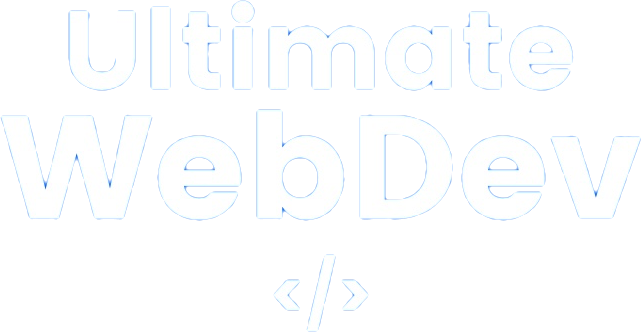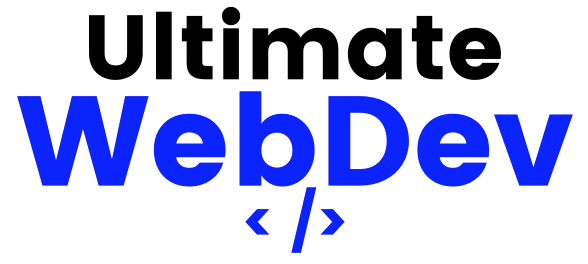In the vast landscape of content management systems, WordPress stands as a giant. With millions of websites running on this versatile platform, it has earned its place as the go-to choice for bloggers, businesses, and developers. However, the digital world is in constant flux, and the future of WordPress is a topic of interest and importance. In this blog post, we’ll dive into the intriguing future of WordPress, exploring the changes, innovations, and trends that will shape its path forward.
Table of Contents
- Introduction
- The Legacy of WordPress
- Why the Future Matters
- The Gutenberg Revolution
- Gutenberg’s Evolution
- Block-Based Editing
- The Future of Content Creation
- Headless WordPress: A Paradigm Shift
- What is Headless WordPress?
- Benefits of Headless WordPress
- Use Cases and Implementation
- WordPress and Artificial Intelligence
- AI-Powered Website Design
- Chatbots and Customer Support
- Content Creation and Curation
- WordPress Security and Privacy
- Evolving Threats
- Data Privacy and Compliance
- The Role of AI in Security
- The Rise of E-commerce in WordPress
- WooCommerce and Beyond
- Payment Integrations
- Future Trends in WordPress E-commerce
- WordPress and Progressive Web Apps (PWAs)
- What are PWAs?
- Benefits for WordPress
- Implementation and the Future
- The Global WordPress Community
- Contributors and Volunteers
- WordCamps and Meetups
- The Impact on the Future
- The Future of WordPress Hosting
- Managed WordPress Hosting
- Serverless Architecture
- Speed and Performance
- Conclusion
- Embracing Change
- The Exciting Road Ahead
1. Introduction
The Legacy of WordPress
WordPress, initially launched in 2003, has come a long way. It started as a blogging platform but quickly evolved into a full-fledged content management system (CMS). Over the years, it has been embraced by developers, designers, bloggers, and businesses to create websites of all types and sizes. WordPress’s vibrant community, vast library of plugins and themes, and user-friendly interface have been key factors in its success.
Why the Future Matters
As we explore the future of WordPress, it’s essential to understand that technology never remains static. What was groundbreaking yesterday may become obsolete tomorrow. Therefore, keeping an eye on the future is crucial for maintaining WordPress’s relevance and adaptability. In this blog post, we’ll uncover some of the most exciting trends and developments that will shape WordPress’s journey ahead.
2. The Gutenberg Revolution
Gutenberg’s Evolution
Gutenberg, the block editor introduced in WordPress 5.0, marked a significant shift in how content is created and edited. With Gutenberg, the classic TinyMCE editor was replaced by a block-based system. What started as a basic editor has rapidly evolved into a more sophisticated content creation tool.
Block-Based Editing
The block-based approach allows users to create complex layouts and designs using a combination of content blocks. These blocks can include text, images, videos, galleries, and custom HTML. The block system provides a more intuitive and flexible way of building web pages.
The Future of Content Creation
The future of Gutenberg promises even more innovation. Expect features like full-site editing, template editing, and an expanded library of blocks. Gutenberg will continue to evolve to make content creation more accessible and dynamic.
3. Headless WordPress: A Paradigm Shift
What is Headless WordPress?
Headless WordPress is a paradigm shift in how WordPress is used. In a traditional WordPress setup, the CMS manages both the content and presentation (front-end). In a headless configuration, WordPress serves as a content repository, while a separate front-end framework or application consumes and displays the content.
Benefits of Headless WordPress
- Flexibility: Developers can choose the most suitable front-end technology for the project, such as React, Angular, or Vue.js.
- Performance: Separating the content from the front-end can lead to faster load times.
- Scalability: Headless architectures can handle large amounts of traffic and complex web applications.
Use Cases and Implementation
Headless WordPress is well-suited for websites and applications that require dynamic content and interactive features. Popular use cases include e-commerce platforms, news websites, and web applications. Implementing a headless setup involves creating an API to access WordPress content, which can be achieved with plugins like WPGraphQL or the WordPress REST API.
4. WordPress and Artificial Intelligence
AI-Powered Website Design
Artificial intelligence is making its presence felt in web design. AI algorithms can analyze user behavior and preferences to personalize website content and layout. This can enhance user engagement and conversions.
Chatbots and Customer Support
Chatbots, often powered by AI, are becoming integral to customer support. WordPress users can integrate AI-driven chatbots to provide instant responses to user queries, improving the user experience.
Content Creation and Curation
AI tools are being used to generate and curate content automatically. WordPress users can leverage AI to create blog posts, news articles, and product descriptions. This can save time and resources while maintaining content quality.
5. WordPress Security and Privacy
Evolving Threats
As WordPress continues to evolve, so do security threats. WordPress websites are often targeted by hackers, making security a top priority. In the future, we can expect new security challenges that require innovative solutions.
Data Privacy and Compliance
Data privacy regulations like GDPR have implications for WordPress website owners. Compliance with these regulations is crucial, and WordPress will need to provide more tools and features to facilitate compliance.
The Role of AI in Security
Artificial intelligence can play a significant role in WordPress security. AI-driven security systems can detect and mitigate threats in real-time, offering an extra layer of protection for WordPress websites.
6. The Rise of E-commerce in WordPress
WooCommerce and Beyond
WooCommerce, the e-commerce plugin for WordPress, has been a game-changer. It powers millions of online stores, making WordPress a formidable e-commerce platform. In the future, we can expect WooCommerce to become even more robust with new features and integrations.
Payment Integrations
E-commerce is heavily reliant on secure and efficient payment systems. Future developments in WordPress will include seamless integration with various payment gateways and digital wallets.
Future Trends in WordPress E-commerce
Look out for trends like augmented reality (AR) shopping experiences, enhanced product visualization, and AI-driven product recommendations in the e-commerce sphere of WordPress.
7. WordPress and Progressive Web Apps (PWAs)
What are PWAs?
Progressive Web Apps (PWAs) are web applications that offer a native app-like experience in the browser. PWAs are known for their speed, offline functionality, and push notifications. WordPress can harness the power of PWAs to create highly responsive web experiences.
Benefits for WordPress
PWAs offer several benefits for WordPress websites, including faster loading times, improved mobile experiences, and the ability to work offline. In the future, WordPress may offer PWA integrations that make it easier for users to create and implement PWAs.
Implementation and the Future
Implementing a PWA in WordPress typically involves a few technical steps, including service worker registration and manifest file creation. As WordPress continues to evolve, we can expect more user-friendly PWA solutions and integrations.
8. The Global WordPress Community
Contributors and Volunteers
WordPress is powered by a dedicated and diverse global community of contributors and volunteers. These individuals play a crucial role in the development, documentation, and support of WordPress. The community’s passion for the platform drives its progress.
WordCamps and Meetups
WordCamps and local meetups are gatherings of WordPress enthusiasts, developers, and users. These events foster collaboration, learning, and networking. They are integral to the WordPress ecosystem and will continue to play a significant role in the platform’s future.
The Impact on the Future
The WordPress community’s collective knowledge and passion drive innovation and improvement. As long as the community remains vibrant and engaged, the future of WordPress is bright.
9. The Future of WordPress Hosting
Managed WordPress Hosting
Managed WordPress hosting services offer optimized environments for WordPress websites. The future of hosting will likely see more efficient, secure, and specialized services tailored for WordPress users.
Serverless Architecture
Serverless architecture is gaining popularity in web hosting. It allows websites to scale dynamically based on traffic, providing cost-effective and efficient solutions. WordPress hosting will likely adopt serverless technologies.
Speed and Performance
Website speed and performance are critical for user experience and SEO. Hosting providers will continue to focus on delivering faster load times, content delivery, and server performance.
10. Conclusion
The future of WordPress is a fascinating journey filled with innovation, challenges, and opportunities. As we’ve explored in this blog post, the platform’s future will be shaped by the evolution of Gutenberg, the adoption of headless architectures, the integration of AI, improvements in security and privacy, the rise of e-commerce, the emergence of PWAs, the thriving global community, and the evolution of hosting services.
As WordPress users, developers, and enthusiasts, embracing change and staying informed about these developments is essential. The future of WordPress is not just about the platform itself but the limitless possibilities it holds for creating a better, more dynamic web. With its rich history and the exciting road ahead, WordPress is set to remain a dominant force in the digital landscape.

